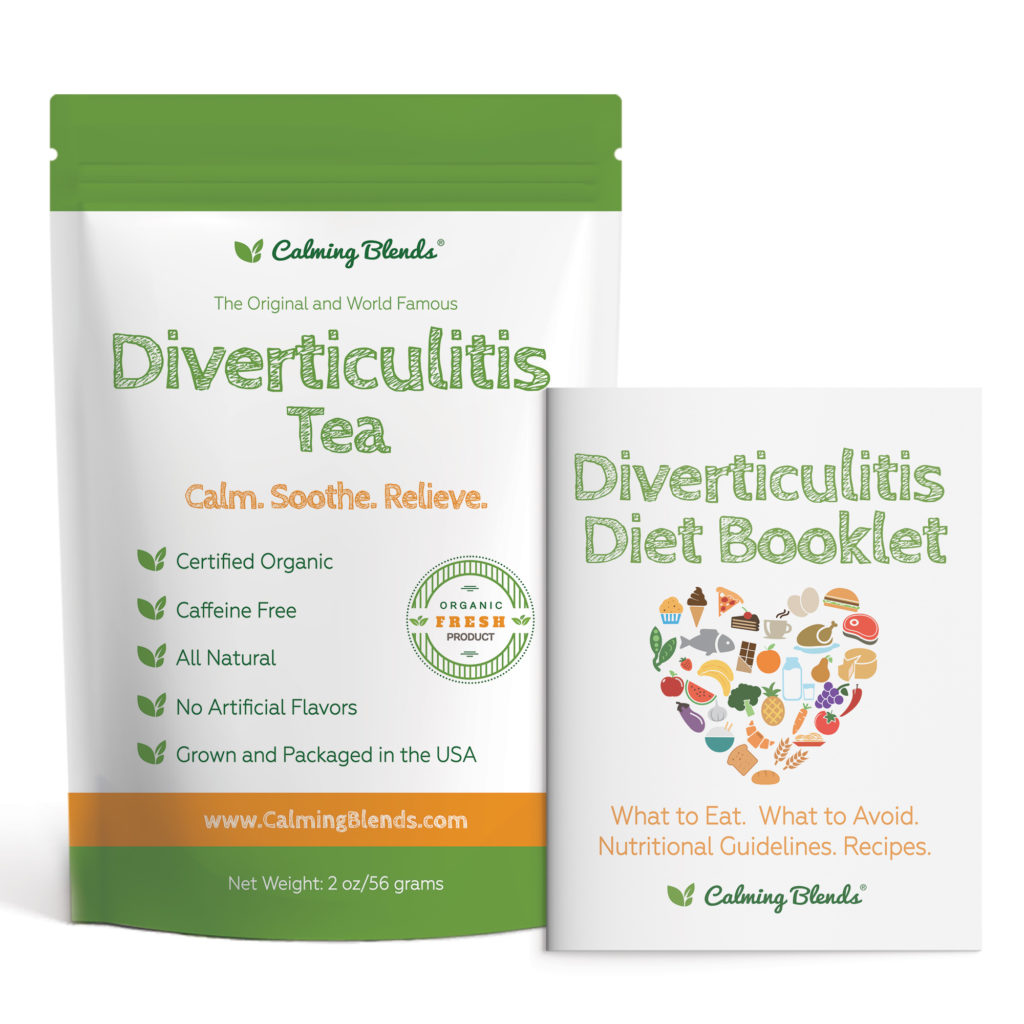Mental Health and Diverticulitis: Strategies for Managing Anxiety and Depression

Mental Health and Diverticulitis: Strategies for Managing Anxiety and Depression
Living with diverticulitis can be challenging, not just physically but mentally and emotionally. The discomfort and unpredictability of the condition can often lead to heightened anxiety and depression. At Calming Blends, we understand the importance of holistic wellness, which is why we created the original Diverticulitis Tea to support your digestive health and overall well-being. In this blog, we’ll explore strategies for managing the mental health aspects of diverticulitis, helping you find balance and peace.
Understanding the Connection
Diverticulitis, an inflammation or infection of small pouches that can form in your intestines, can significantly impact your mental health. The pain, dietary restrictions, and frequent medical appointments can create a sense of constant worry and stress. Additionally, the fear of flare-ups can lead to anxiety, while the chronic nature of the condition can sometimes contribute to feelings of depression. Recognizing this connection is the first step toward effectively managing both your physical and mental health.
Strategies for Managing Anxiety
- Mindfulness and Meditation
Practicing mindfulness and meditation can help you stay grounded and manage anxiety. Mindfulness involves focusing on the present moment and accepting it without judgment. Meditation, particularly mindfulness meditation, has been shown to reduce anxiety levels and improve overall emotional well-being. Simple breathing exercises, guided meditations, or even a few minutes of quiet reflection each day can make a significant difference. Apps like Headspace and Calm offer guided sessions that can help you get started.
- Regular Exercise
Physical activity is a proven way to reduce anxiety. It helps by releasing endorphins, the body’s natural stress relievers. You don’t need to engage in intense workouts; even moderate activities like walking, swimming, or yoga can help. Regular exercise can also improve your sleep, which is often disrupted by anxiety. Aim for at least 30 minutes of physical activity most days of the week. Finding an exercise routine that you enjoy can make it easier to stick with it and gain the mental health benefits.
- Healthy Diet
Eating a balanced diverticulitis diet that supports your digestive health is crucial. Certain foods can trigger diverticulitis flare-ups, which can increase anxiety about your condition. At Calming Blends, our Diverticulitis Tea is specially formulated to soothe your digestive system, which can, in turn, help reduce anxiety related to flare-ups. Incorporate plenty of fiber, fruits, vegetables, and lean proteins into your diet, and stay hydrated. Avoid foods that can aggravate your condition, such as nuts, seeds, and popcorn.
- Routine and Structure
Establishing a daily routine can provide a sense of control and predictability. This can help reduce the uncertainty and anxiety that often accompany diverticulitis. Create a schedule that includes regular meal times, exercise, and relaxation periods. Sticking to a routine can help you manage your symptoms more effectively and reduce the stress of dealing with unexpected flare-ups.
- Therapeutic Techniques
Cognitive-behavioral therapy (CBT) is particularly effective for managing anxiety. CBT helps you identify and change negative thought patterns that can contribute to anxiety. Working with a therapist can provide you with tools to cope with the stress and anxiety associated with diverticulitis. Additionally, support groups, either in-person or online, can offer a sense of community and understanding, helping you feel less isolated in your experiences.
Strategies for Managing Depression
- Seek Professional Help
If you’re experiencing symptoms of depression, it’s important to seek help from a mental health professional. Depression can manifest in many ways, including persistent sadness, loss of interest in activities you once enjoyed, changes in appetite or sleep patterns, and feelings of hopelessness. Therapy and medication can be effective treatments for managing depression. Therapists can provide coping strategies, while medication can help balance the chemicals in your brain.
- Stay Connected
Maintaining social connections with family and friends can provide emotional support. Don’t hesitate to lean on your support network when you’re feeling down. Social interactions can boost your mood and remind you that you’re not alone. Even if you’re not up for socializing in person, a phone call or video chat can help you stay connected. Consider joining a support group where you can share your experiences and learn from others who understand what you’re going through.
- Engage in Activities You Enjoy
Participating in activities that bring you joy can help lift your spirits. Whether it’s reading, gardening, painting, or any other hobby, making time for enjoyable activities is essential. Engaging in hobbies can provide a sense of accomplishment and distraction from your symptoms. If you find it hard to motivate yourself, start with small, manageable tasks and gradually build up to more involved activities.
- Journaling
Writing down your thoughts and feelings can be therapeutic. Journaling can help you process emotions and gain insights into your mental health. It allows you to express your worries and fears, which can reduce their intensity. You can also use your journal to track your symptoms, diet, and mood, helping you identify patterns and triggers. Reflecting on your entries can provide valuable insights into your condition and emotional well-being.
- Self-Care Practices
Self-care is crucial for managing depression. This includes getting enough sleep, eating well, staying hydrated, and taking time for yourself. Create a self-care routine that includes activities that relax and rejuvenate you, such as taking a warm bath, reading a good book, or practicing mindfulness exercises. Self-care helps you recharge and maintain a positive outlook on life.
Holistic Approaches
At Calming Blends, we believe in a holistic approach to wellness. Our Diverticulitis Tea is designed to support your digestive health naturally, which can contribute to overall well-being. Combining our tea with these mental health strategies can create a comprehensive plan for managing both the physical and emotional aspects of diverticulitis. Incorporating holistic practices like acupuncture, massage therapy, and herbal supplements can also provide relief and support your overall health.
The Importance of Sleep
Sleep plays a vital role in both physical and mental health. Poor sleep can exacerbate anxiety and depression, while good sleep can improve your mood and energy levels. Establish a regular sleep schedule, create a restful environment, and practice good sleep hygiene. Avoid caffeine and electronic devices before bed, and consider relaxation techniques like reading or listening to calming music to help you unwind.
Building a Support System
Having a strong support system is essential for managing diverticulitis and its associated stress. Surround yourself with understanding and supportive people who can offer emotional and practical help. This might include family, friends, healthcare professionals, and support groups. Don’t hesitate to reach out for help when you need it. A solid support system can provide comfort and reduce feelings of isolation.
Embracing Wellness: A Journey Towards Balance and Peace
Managing the mental health aspects of diverticulitis is just as important as addressing the physical symptoms. By incorporating these strategies into your daily routine, you can reduce anxiety and depression, improving your quality of life. Remember, you’re not alone in this journey. At Calming Blends, we’re here to support you with our original Diverticulitis Tea and a commitment to your holistic wellness. Our tea is crafted to help soothe your digestive system, making it easier to manage your condition and focus on your mental health.
For more information about our products and tips on managing diverticulitis, visit our website and join our community for ongoing support and inspiration. Together, we can navigate the challenges of diverticulitis and find a path to better health and well-being.
Calming Blends health’s content is for informational and educational purposes only. Our website is not intended to be a substitute for professional medical advice, diagnosis, or treatment.
